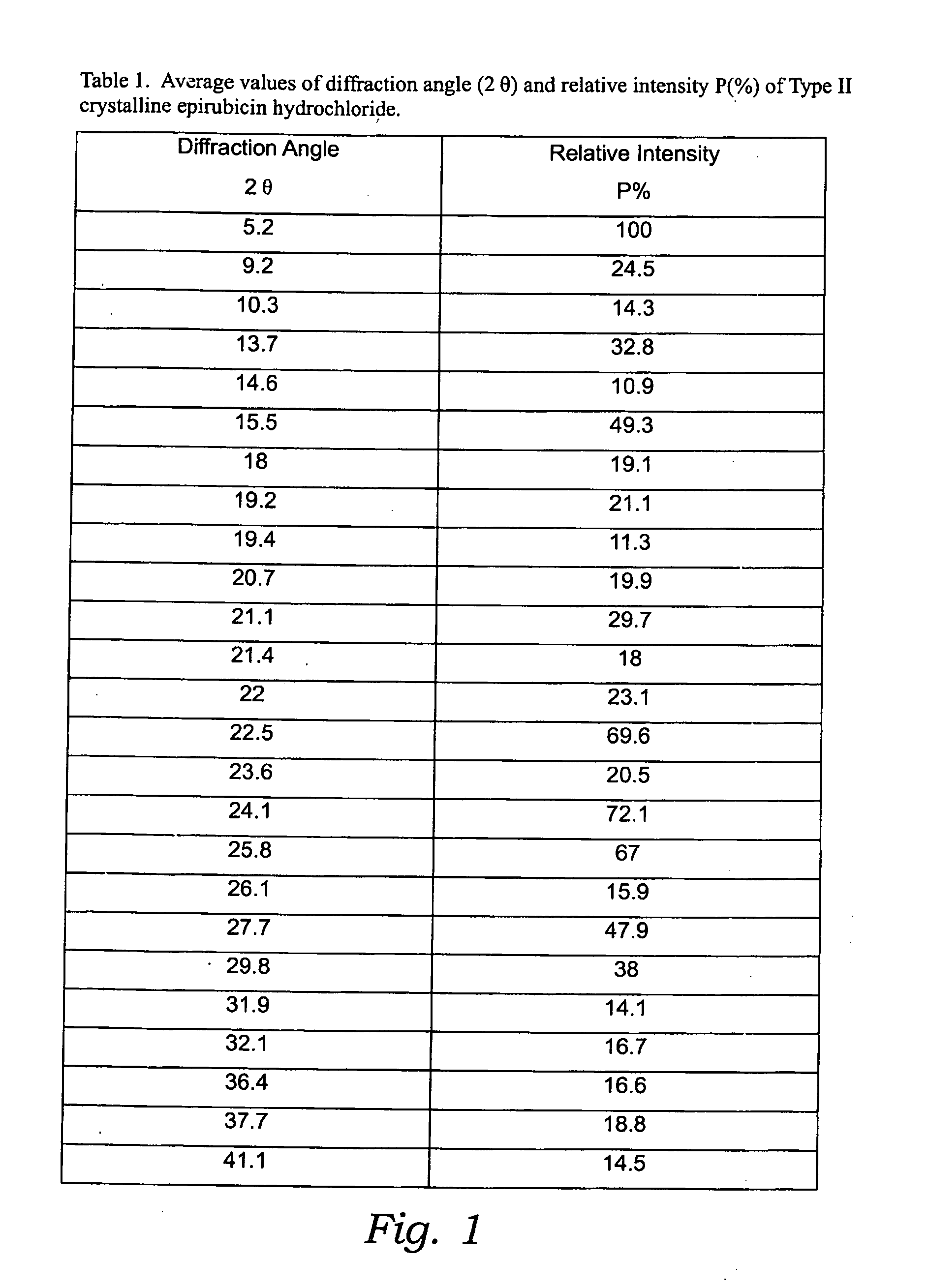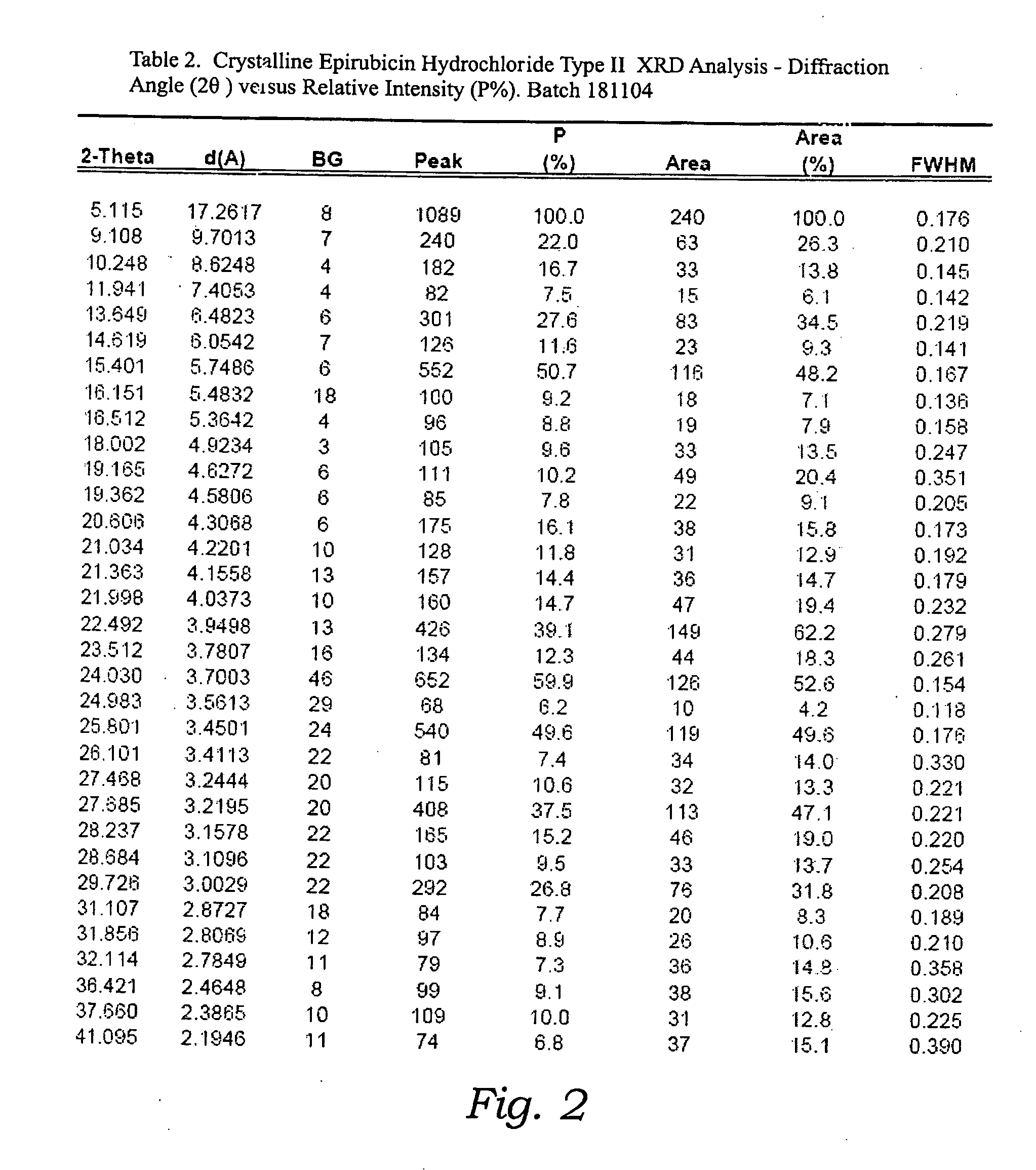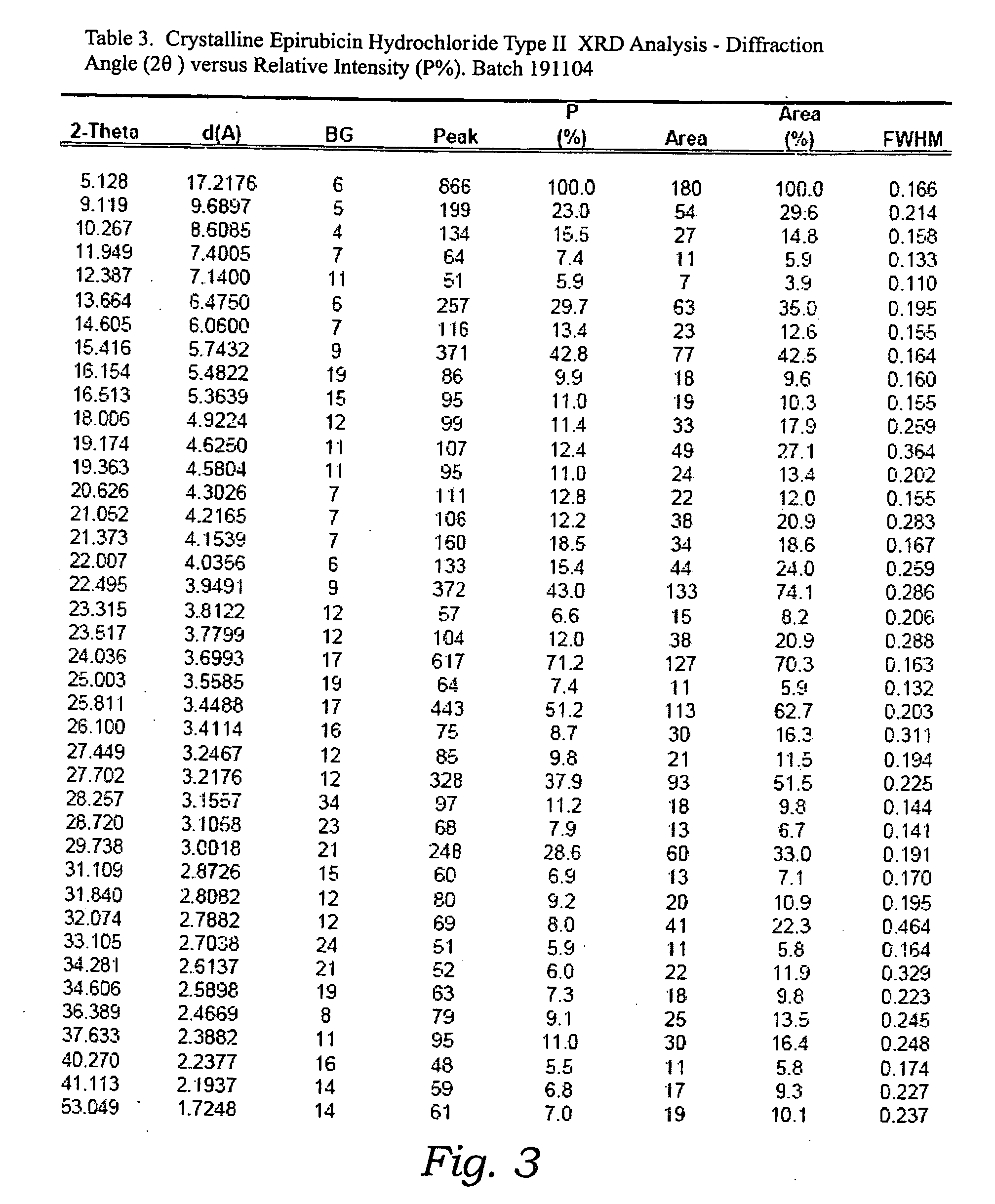Thermally stable crystalline epirubicin hydrochloride
- Summary
- Abstract
- Description
- Claims
- Application Information
AI Technical Summary
Benefits of technology
Problems solved by technology
Method used
Image
Examples
example 1
[0044](1) A solution of epirubicin hydrochloride (10.0 grams) in water or in ethanol-in-water mixture (pH 3-4) undergoes low-pressure evaporation at a temperature of 40° C. until a gel state of the solution is achieved.
[0045](2) 1-propanol in the amount of 12-times the volume of the residual solution is then added to the residual solution and stirred for 3 hours at a temperature of 60° C.
[0046](3) Precipitated crystals of epirubicin hydrochloride are then collected by filtration, washed in 10 ml of acetone and dried at room temperature.
[0047](4) The result is 9.3 grams of type II epirubicin hydrochloride crystals.
[0048](5) As seen in FIG. 10, the melting point of type II crystalline epirubicin hydrochloride is approximately 207° C. with decomposition (hot stage 2° C. / min). FIG. 12 illustrates the IR-spectrum (IR (KBr)) of type II crystalline epirubicin hydrochloride. Peaks / valleys are seen at 3415, 2928, 1720, 1620, 1576, 1510, 1413, 1371, 1284, 1239, 1210, 1162, 1115, 1068, 1019, 9...
example 2
[0049](1) A solution of epirubicin hydrochloride (10.0 grams) in water or in ethanol-in-water mixture (pH 3-4) undergoes low-pressure evaporation at a temperature of 40° C. until a gel state of the solution is achieved.
[0050](2) Absolute ethanol in the amount of 10-times the volume of the original solution is then added to the residual solution and stirred for 2 hours at a temperature of 60° C.
[0051](3) Precipitated crystals of epirubicin hydrochloride are then collected by filtration, washed in 10 ml of ethanol and 10 ml of acetone and dried at room temperature.
[0052](4) The result is 7.5 grams of type II epirubicin hydrochloride crystals.
[0053]The following example (Example 3) discloses a method of producing type I epirubicin hydrochloride crystals, namely epirubicin hydrochloride crystals as described in U.S. Pat. No. 4,861,870.
example 3
[0054](1) Step is identical to step 1 in Example 1 above.
[0055](2) Gel solution of epirubicin hydrochloride is poured into 300 ml of acetone.
[0056](3) Precipitated crystals of epirubicin hydrochloride are then collected by filtration and washed in 50 ml of acetone.
[0057](4) The result is 9.7 grams of type I epirubicin hydrochloride crystals.
[0058]As seen in FIG. 12, the melting point of type I crystalline epirubicin hydrochloride is approximately 196° C. with decomposition (hot stage 2° C. / min). FIG. 13 illustrates the IR-spectrum (IR (KBr)) of type I crystalline epirubicin hydrochloride. Peaks / valleys are seen at 3430, 2934, 2027, 1724, 1617, 1583, 1508, 1445, 1412, 1284, 1236, 1211, 1162, 1121, 1064, 1018, 992, 931, 909, 876, 814, 792, 767, 738, 721, 693, 588, and 465 cm−1.
PUM
| Property | Measurement | Unit |
|---|---|---|
| Temperature | aaaaa | aaaaa |
| Temperature | aaaaa | aaaaa |
| Angle | aaaaa | aaaaa |
Abstract
Description
Claims
Application Information
 Login to View More
Login to View More - R&D
- Intellectual Property
- Life Sciences
- Materials
- Tech Scout
- Unparalleled Data Quality
- Higher Quality Content
- 60% Fewer Hallucinations
Browse by: Latest US Patents, China's latest patents, Technical Efficacy Thesaurus, Application Domain, Technology Topic, Popular Technical Reports.
© 2025 PatSnap. All rights reserved.Legal|Privacy policy|Modern Slavery Act Transparency Statement|Sitemap|About US| Contact US: help@patsnap.com



